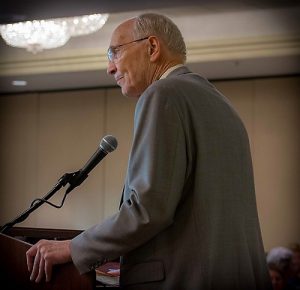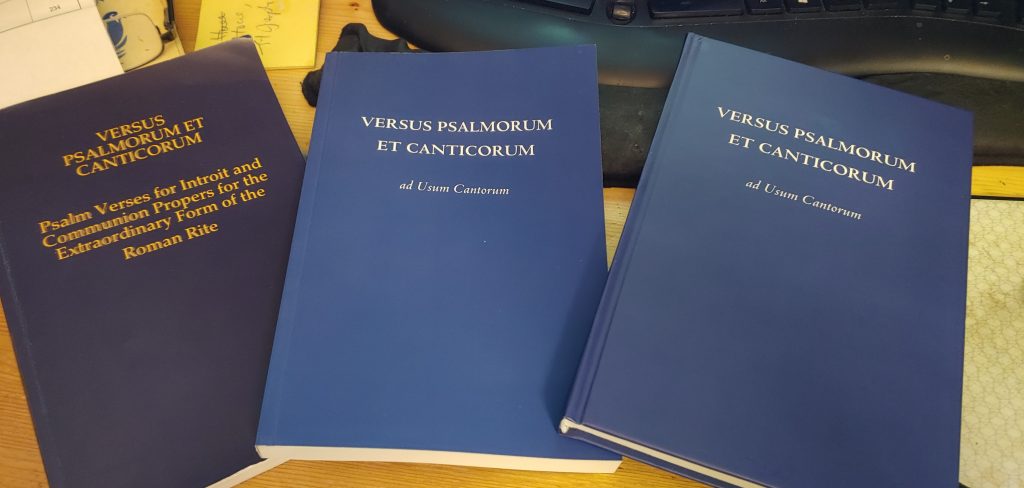The Sacred Music Institute of America (SMIA) will offer three 10-week online courses during the Spring 2021 semester, which begins on 18 January.
Each course includes ten video lectures, plus weekly opportunities to ask questions and gain additional experience through live Zoom sessions. For more information on the courses, as well as the Institute’s certification tracks for church musicians and chant training program for clergy, visit www.sacredmusicinstitute.org.
 Chant II (taught by Dr. William Mahrt): A ten-week intermediate course in Gregorian chant for singers, directors, and lovers of the liturgy and its music. It will presume a rudimentary knowledge of reading Gregorian notation, and will proceed from the reading and singing of chants in Latin from the antiphons of the Divine Office to the chanted propers of the Mass.
Chant II (taught by Dr. William Mahrt): A ten-week intermediate course in Gregorian chant for singers, directors, and lovers of the liturgy and its music. It will presume a rudimentary knowledge of reading Gregorian notation, and will proceed from the reading and singing of chants in Latin from the antiphons of the Divine Office to the chanted propers of the Mass.
Review of notation and Latin pronunciation will be the foundation for the discussion of textual and musical the chants: mode, tessitura, contour, density, text expression, and co-ordination with liturgical action. Beginning with the simpler chants, psalm antiphons, musical, liturgical, and spiritual aspects of each genre will be studied in turn: introits, communions, offertories, graduals, alleluias, and tracts, with emphasis on the processional propers.
Some chants of the Ordinary of the Mass will be included as well. Aspects of the liturgical year will be addressed, with an emphasis upon the upcoming Holy Week.
 History of Sacred Music (Taught by Emily Lapisardi): A ten-week course which will be taught by Emily Lapisardi, director of music at the Catholic Chapel at the United States Military Academy (West Point, NY).
History of Sacred Music (Taught by Emily Lapisardi): A ten-week course which will be taught by Emily Lapisardi, director of music at the Catholic Chapel at the United States Military Academy (West Point, NY).
This ten week course provides a survey of the historical role of music in worship from its roots in the Old Testament to the present day, exploring landmark repertoire within the framework of turning-points in ecclesiastical history. While the class will focus primarily on Christian music in the western world, cross-cultural influences will also be explored.
Music Theory II (Taught by Emily Lapisardi): This course builds upon the fundamental skills and concepts explored in Theory I; therefore, some prior knowledge of the subject matter is required.
Topics include: harmonic analysis, seventh chords, harmonization of melodies, transposition, modulation to closely related keys, non-harmonic tones, modes and neumes, basics of counterpoint, and musical forms.
Tuition for each course is $850. Register now by visiting the SMIA website.


 Chant II (taught by Dr. William Mahrt): A ten-week intermediate course in Gregorian chant for singers, directors, and lovers of the liturgy and its music. It will presume a rudimentary knowledge of reading Gregorian notation, and will proceed from the reading and singing of chants in Latin from the antiphons of the Divine Office to the chanted propers of the Mass.
Chant II (taught by Dr. William Mahrt): A ten-week intermediate course in Gregorian chant for singers, directors, and lovers of the liturgy and its music. It will presume a rudimentary knowledge of reading Gregorian notation, and will proceed from the reading and singing of chants in Latin from the antiphons of the Divine Office to the chanted propers of the Mass. History of Sacred Music (Taught by Emily Lapisardi): A ten-week course which will be taught by Emily Lapisardi, director of music at the Catholic Chapel at the United States Military Academy (West Point, NY).
History of Sacred Music (Taught by Emily Lapisardi): A ten-week course which will be taught by Emily Lapisardi, director of music at the Catholic Chapel at the United States Military Academy (West Point, NY).